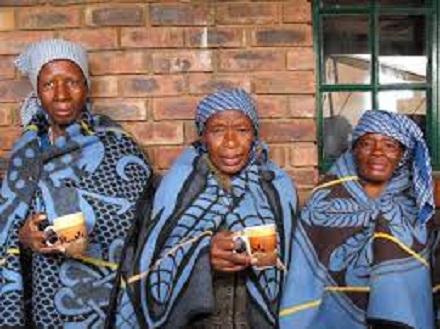Africa-Press – Lesotho. The Afrobarometer study findings have revealed that the majority of Basotho opt for traditional leaders over political leaders. These revelations are contained in the report published on December 21 last year.
The survey was reportedly conducted on 1,200 adult citizens of Lesotho in February and March 2020. “Basotho are considerably more satisfied with their traditional leaders than with their elected officials.
“Afrobarometer survey findings show that traditional leaders continue to enjoy popular support in Lesotho. They are more widely trusted than elected officials, and seen as less prone to corruption.
Indeed, a majority of Basotho would favour an even stronger role for traditional leaders, who they say look out for the interests of their communities and work in cooperation, rather than in competition, with elected leaders. These findings suggest that in Lesotho, traditional and modern systems can work in concert for the benefit of ordinary citizens,” says the report.
According to the study findings, about 64 percent of the interviews have shown confidence in the work of the traditional leaders over the community councillors, Members of Parliament (MPs) and the then Prime Minister Motsoahae Thabane.
It further goes on to show that 57 percent “widely” trust the traditional leaders and believe are 16 percent less corrupt than elected officials. “Most Basotho see traditional leaders as highly influential in resolving disputes and governing their local community, but a few say they carry much weight in affecting how people vote in elections.
Six in 10 Basotho (61%) support an increased level of influence for traditional leaders in the governing of local communities. A majority (52%) of respondents say traditional leaders “often” or “always” do their best to listen to what ordinary people have to say – a far more positive assessment than they give community councillors (25%) and MPs (8%),” the findings further establish.
About 66 percent of Basotho are of the idea that the traditional leaders harbour best interest of their communities and more than 87 percent said that they “cooperate’ with the elected leaders “to get things done, as opposed to competing with them for resources and power”.
The traditional leaders according to the study are said to “fare better” than the elected officials in terms of “popular trust and perception of corruption”.
“Eight in 10 respondents (79%) say traditional leaders exert “a lot” of influence in settling disputes, while two-thirds (66%) say the same about their role in local government.
About four in 10 (38%) say they have “a lot” of influence in allocating land, although another one-third of respondents say they have “some influence” (12%) or “a small amount of influence” (22%) in this area.
Only one in seven (14%) see traditional leaders as highly influential in shaping how people vote,” reports the survey. Afrobarometer is a pan-African institute which undertakes research studies on African “experiences and evaluations of democracy, governance, and quality of life”. The Afrobarometer had conducted other studies in Lesotho in 2000, 2002, 2005, 2008, 2012, 2014, and 2017.
For More News And Analysis About Lesotho Follow Africa-Press






